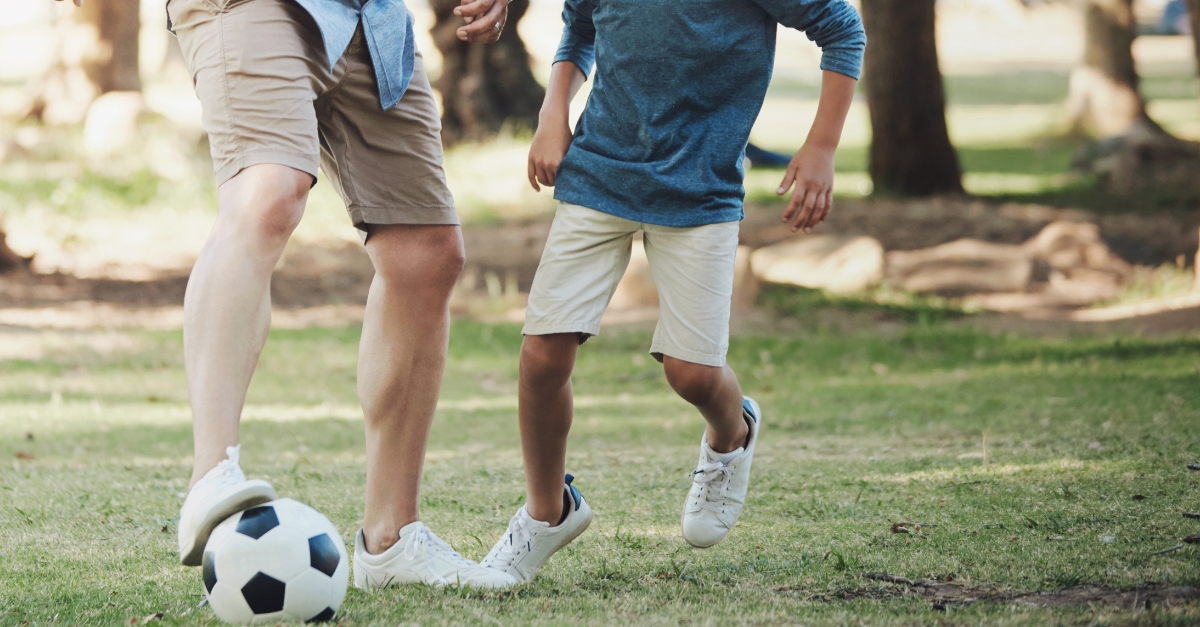

Sports are an excellent way for kids to work on their physical health while learning important lessons about community, commitment, and responsibility. However, injuries related to these sports are sometimes unavoidable. Issues like concussions and orthopedic injuries are commonly discussed, but did you know there are also severe urological injuries young athletes can experience? To help you and your children stay ready and informed, we’re discussing common pediatric urological injuries from popular children’s sports.
How Common Are Sports-Related Genitourinary (GU) Injuries?
Genitourinary trauma includes injuries to the kidneys, bladder, and genitals (testes, vagina, and penis) is reported to represent a significant 10% of all pediatric traumas. Notably, emergency room and hospital-based national injury and trauma registries have identified sporting injury as the cause of one-third of genitourinary injuries in children, thereby making it the most common cause of pediatric GU injury. Trauma registries may underestimate the real number of injuries because they do not include less serious injuries treated in outpatient clinics and physicians’ offices.
What Sports Activities Are Riskiest?
Involvement in sports activities can be an important part of a child’s development. Knowing which activities are more likely to be associated with injuries helps parents and children become more aware and take proper precautions while still enjoying sports participation. For instance, one-third of genitourinary sports-related injuries occur with bicycling, making it the most common activity associated with genitourinary injury. Most kids enjoy bike riding, so unsurprisingly, this activity tops the list. Also, the riskier form of biking, including off-road biking and extreme sport biking, is becoming more popular.
Injuries related to team sports such as football, baseball, softball, basketball, soccer, and lacrosse are also common, particularly among boys, and combined, these activities represent another third of all injuries. Kicks to the groin, helmet contact, or the impact of a fast-moving ball, as with baseball or lacrosse, can cause serious damage to the testicles. The most serious injuries to the testis occur when the testis is hammered against the pubic bone, resulting in a contusion, bleeding inside the scrotum, or rupture of the testis. Some injuries may not be correctable and may result in the loss of a testicle. Fortunately, most patients with team sports injuries are evaluated and treated in the ED without inpatient admission.
How Can Common Pediatric Urology Sports Injuries Be Avoided?
Genitourinary injuries from bicycles are usually from falls or straddle injuries, and most bike injuries occur from collisions with the “top bar” or the handlebars. Using a properly fitted bike, properly padded seats, a padded top bar, and attention to speed and surroundings will lessen the likelihood of injury.
Male athletes participating in contact sports, including football, soccer, baseball, basketball, lacrosse, and hockey, should wear an athletic cup made of hard plastic or metal. Boys should begin to wear a cup as soon as they are big enough for one to fit – usually around age 6 to 8. Proper fit is crucial and the cup must be held in correct position by an athletic supporter, jock strap or compression shorts designed to be fitted with a cup. The cup should fit firmly against the body and not shift out of place during activity. If your son is involved in a non-contact sport that involves lots of running, a jock strap or compression shorts without a cup are sufficient and will help keep the penis and scrotum up and out of the way. If you are uncertain what your son should use, ask a knowledgeable coach or athletic trainer.
Signs and Symptoms of Pediatric Urology Sports Injuries?
Blood in the urine or at the opening of the urethra, inability to urinate, flank or abdominal pain, or swelling, bruising, and tenderness of the external genitalia usually accompany genitourinary injury. To reduce the morbidity of the injury, it is important to identify and properly manage genitourinary injuries quickly. If an injury has occurred, there should not be any delay in getting medical attention for your child. X-rays, ultrasound, and CT imaging may be necessary to assess an injury fully. While most injuries are managed with monitoring and supportive care, and only a few with surgical treatment, the best treatment can only be determined after careful evaluation.
Can Children With a Solitary Kidney or Testis Participate in Contact Sports?
Yes, boys with a single testicle or a history of an undescended testicle can participate in contact sports if they wear a protective cup. For children with chronic kidney disease or a solitary kidney, the current policy statement by the American Academy of Pediatrics is a “qualified yes”. This recommendation stems from the recognition that kidney injuries during contact sports are uncommon, and catastrophic kidney injuries are even rarer. However, parents of children with kidney problems or solitary GU organs should carefully consider the risks and benefits of their child’s participation in a contact sport and make an informed decision only after consulting with their child’s pediatrician and urologist.
If you have any questions or concerns about common pediatric urology sports injuries, schedule an appointment with an expert Georgia Urology pediatric urologist.
